I finally found the time to read Ibram X. Kendi’s How To Be an Antiracist, published last year to enormous critical and cultural acclaim. It is very hard to overstate the value of the book, especially in our troubled political times, when the belief that the status quo—however one defines it—seems no longer a viable proposition for the future. To get to a better world for all, one without racism and all sorts of dehumanizing forms of discrimination, the only option before us is to work tirelessly to get rid of capitalism, the ruling deity that has been the source of all our tragedies since it appeared in the last few centuries, and replace it—I surmise from the contrast Kendi makes in his book—with a more equitable market economy, one that is based on fair exchange, not the ruthless exploitation of all life forms and the destruction of the climate, among other depredations, to benefit a vanishingly small group of people.
Kendi doesn’t use the S word (socialism), nor does he give us everyday details of the new antiracist society he imagines; but one book is not supposed to solve all the world’s problems at once. It is enough that the author has stretched the meaning of the term “antiracism” to include a commitment to all human rights (and races) and the non-negotiable repudiation of capitalism. Of course, he is not the first to connect racism to capitalism since he quotes Martin Luther King Jr. on the same subject, but his style brings back the equation with fresh urgency and a writing style with its own rhythmic cadences. In case readers think that they can be antiracist and still believe (rosy statistics in hand) in the magical powers of capitalism to lift all boats and shower us with the riches we have come to enjoy, they are unlikely to get away with that argument: “To love capitalism,” Kendi says emphatically, “is to end up loving racism.” This is so because “capitalism is essentially racist” and “racism is essentially capitalist.” Kendi is unambiguous about this: He compares capitalism to his own stage 4 colon metastatic cancer, which, if the slim odds are on the patient’s side, can only be obliterated through a brutal regime of chemotherapy. It is a gift to us all that Kendi survived his frightening ordeal.
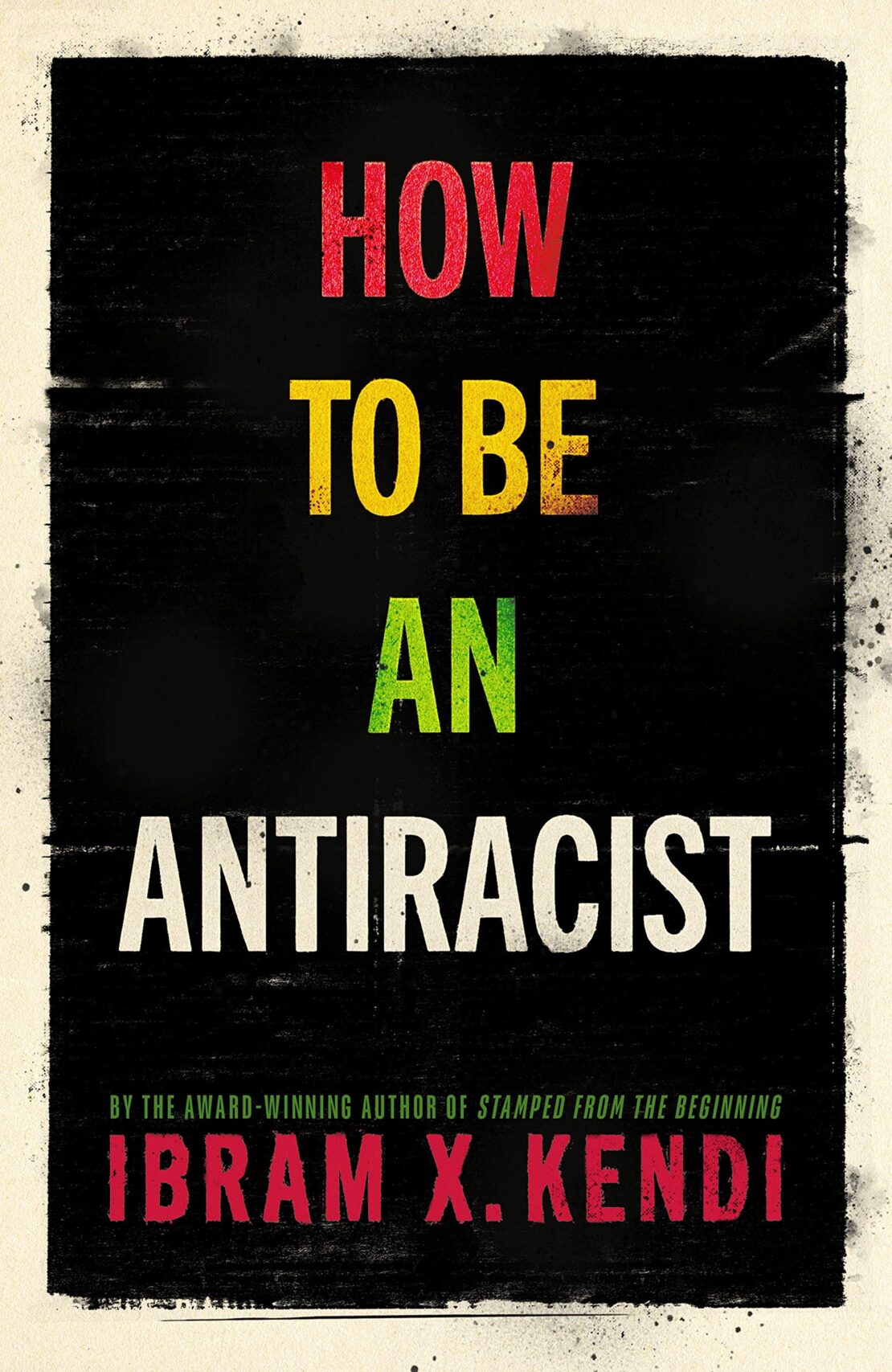
One of the pleasures of reading Kendi’s book is to be reminded that every generation produces its own Malcolm X type of leader. Although both men are from different socio-economic backgrounds, they eventually end up—after unpromising beginnings—with formidable intellects, stunning communications skills, and a broad, global perspective based on a voracious appetite for reading. Both started out making an impression as orators, both were struck by the Nation of Islam’s mythology of the evil scientist from the original Meccan tribe of Shabazz who manufactures an evil White race, both change their names (although the X they share means different things) and, rather eerily, both men’s careers (before the untimely death of Malcolm X at age 39) seem to have evolved along the same timeline.
Before Malcolm X discovers the joys of Islam, his reading has shown him “how the white man had brought upon the world’s black, brown, red, and yellow peoples every variety of the sufferings of exploitation.” He sees “how since the sixteenth century, the so-called ‘Christian trader’ white man began to ply the seas in his lust for Asian and African empires, and plunder, and power.” Even before Malcolm X breaks away from the Nation of Islam and renames himself El-Hajj Malik El-Shabazz, he already understands the value of what Kendi calls “policy” (as opposed to activism, not to mention the unproductive use of vague terms like “structural” or “institutional” racism). During his Nation of Islam activist phase, the vast majority of letters Malcolm X receives are from Whites who, quite often, agree with him (although for different reasons) but who object to his calling them “devils.” To which Malcolm X replies: “We are speaking of the collective white man’s historical record.” After discovering that the mainstream, orthodox religion of Islam is multiracial and includes all races, he advises his White allies to “go and teach non-violence to white people” and change their own system.
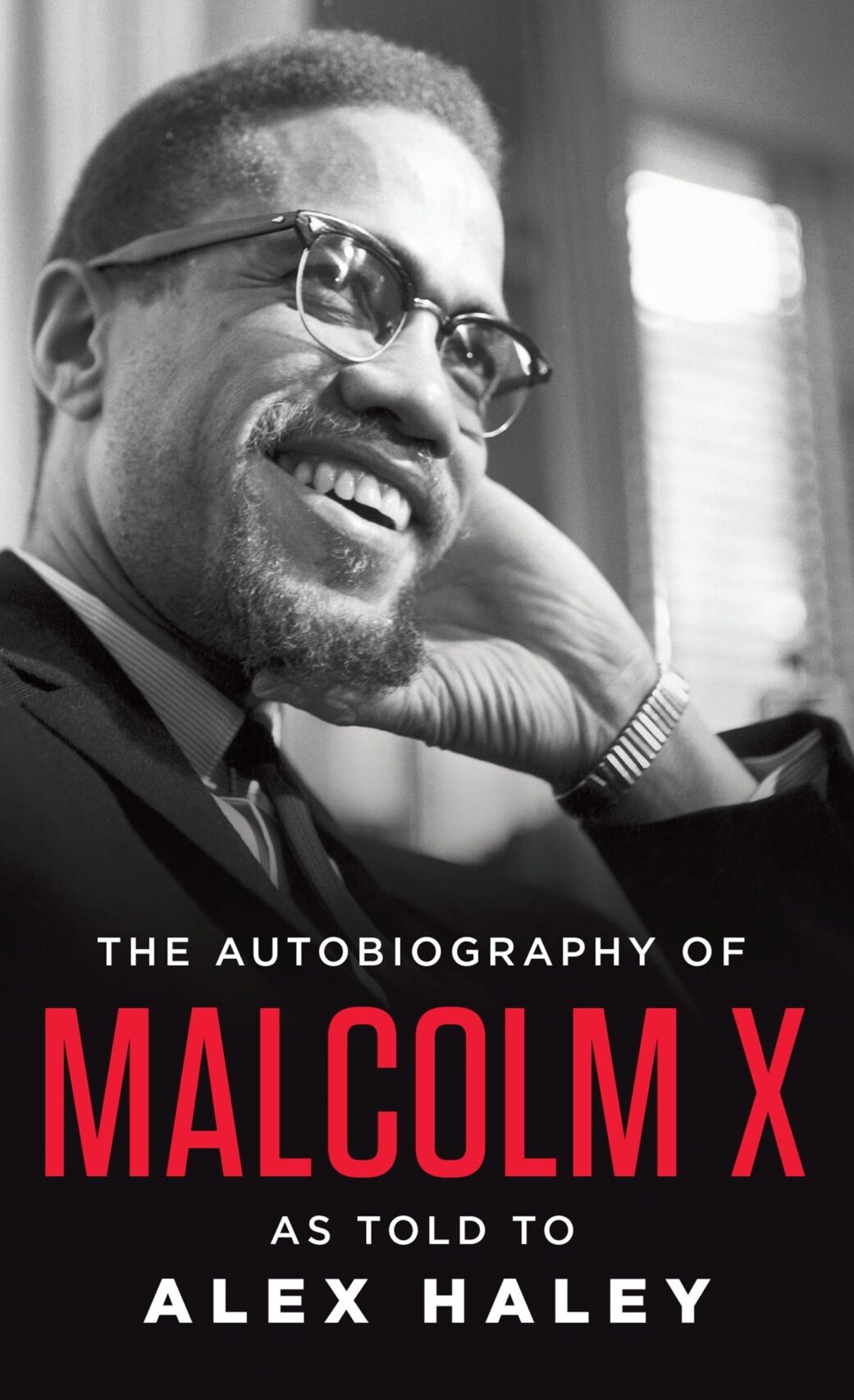
Before Malcolm X’s assassination in 1965, and knowing that the White media would control how he is portrayed after his death, he wishes that he had a better education, was trained as a lawyer to do “verbal battle,” and studied African languages, such as the Hausa and Swahili, in addition to Chinese, “the most powerful political language of the future.” It is comforting to know that a whole new generation of Blacks and other non-Whites has now acquired those skills, albeit they do so in a world in which they are still struggling to enjoy equal justice and access. Kendi acknowledges that Blacks and other minorities do have some power to affect policy by virtue of the privileged positions they occupy in their various professions, but their numbers, along with the right consciousness (which is critical), need to keep growing and spreading before real, meaningful change can be instituted.
The question I have, though, is whether it is possible to change a flawed civilizational model from within, especially if the main institutions of that civilization are all products of the capitalist-racist worldview we seek to dismantle. Islam may have given hope to Malcolm X and inspired him to see the world differently in racial terms, but Muslim-majority nations are all embedded, in one way or another, in the global capitalist economy. What policies, to use Kendi’s recommended path, could get us to a nonracist world? Can one really think that using the banking system will help us end capitalism? Are our colleges and universities equipped to give us the tools to end racism? Will equal access to fast-speed Internet level the playing field? White America today measures the success of its antiracist policies by keeping track of how many Blacks and other minorities are serving in positions of “power” as determined by the capitalist system; by this definition, being antiracist only increases the amount of racism in society and aggravates inequities around the world.
Obviously, our capitalist civilization today is, like most things in our lives, the product of historical forces. It is only when certain conditions converge that a new order can be born, just as happened with our cultural assumptions following the slave trade in the 17th and 18th centuries. Skin-color racism did more than oppress non-Whites—it impelled Europeans to downplay the vital contributions of Africa in the making of European civilization.
That ancient Greeks testified to the massive influence of Egypt and Phoenicia (roughly present-day Lebanon) on their culture is beyond dispute, as Martin Bernal, another forgotten and highly contested scholar shows in Black Athena, published in 1987. It was no less than the first major historian Herodotos who acknowledged Greece’s indebtedness to the Egyptians and Phoenicians in practically every facet of Greek civilization. Even the names of Greek gods were imported from Egypt. (For his confession, Herodotos was condemned as a liar by the great 2nd-century Roman writer Plutarch.) But Plato, too, was impressed by Egypt. This love affair, Bernal tells us, lasted till the 18th century, when the idea of borrowing (especially from lowly Africans) worked against growing national pride. It was in this broad historical context that the notion of a superior white race, inhabiting the cold mountainous regions of Northern Europe, spread among leading thinkers, including John Locke, David Hume, and other major figures of the Enlightenment. (It might have been helpful to remember that Aristotle who had argued for slavery thought of Northern Europeans as inferior people.)
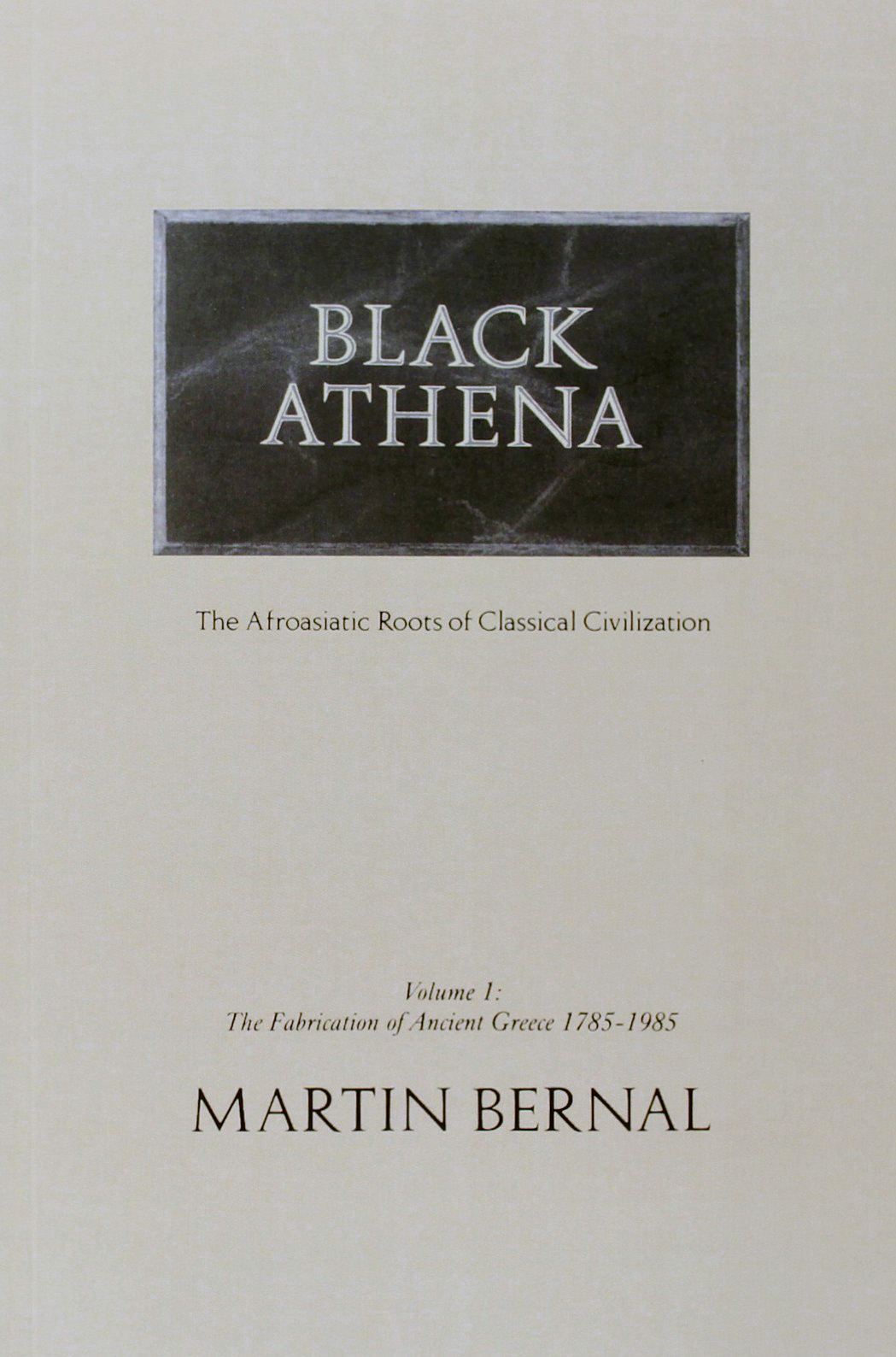
Göttingen University, established in 1734, became the foundation of a new scholarship premised on ethnic and racial classifications. In 1775, J. F. Blumenbach, a professor of natural history, published De Generis Humani Varietate Nativa, a scientific study of the human races in which he concluded that white Europeans (originating in the Caucasus) were descendants of the initial, pure race from which others were degenerate derivations. Thus, from 1775 to 1800, Göttingen laid the intellectual framework for emerging disciplines, especially Classical Philology and the Classics which would later be part of the liberal arts curriculum in Britain and America.
As British imperialism generated a fascination with India and Sanskrit (the original language of Brahmins, the descendants of the Aryan conquerors from Central Asia), the concept of an “Indo-European” language family, first used by Thomas Young in 1816, was invented to deal with this new racial cartography. Meanwhile, following the defeat of the Chinese in the Opium War and the substitution of British and European manufactured goods for Chinese luxury goods, the image of China changed to that of a filthy country. As a result, both China and Egypt “were kicked out of history into the antediluvian past,” writes Bernal.
The occasional and rare voice of reason was dismissed as crankiness. Victor Bérard, a Swiss/French scholar, knew that racism had totally distorted the dominant scholarship. “We can only conceive of Greece as the country of heroes and gods,” he lamented. “In vain does Herodotos tell us that everything comes from Phoenicia and Egypt.” It was only when German racism was discredited after World War II and the Holocaust, the Jews were re-incorporated in Western academies, Israel was established, and new discoveries were made in the field of archaeology that it was possible to temper this extreme Hellenomania. By the end of his book, Bernal was optimistic that the traditional account of how ancient Greece owes its exceptional legacy to African and Semitic influences would slowly be restored, especially in the United States. But he also knew that enduring racism toward Blacks, anti-Muslim and -Arab sentiments, and the Muslim Egyptians’ own ambivalence toward their ancient past may very well slow down the overdue process of restoration.
Kendi is right: The rise of capitalism has been accompanied, every step of the way, by a systematic attempt to rewrite history and establish White Europeans as the uncontested masters of the natural world order. One would be hard-pressed today to find a major institution whose core values have not been shaped by this capitalist-cum-racist mindset. What, then, is to be done? as Lenin famously asked. Dismantling capitalism by relying on (and benefiting from) cultural practices produced by institutions (universities, media, etc.) that are designed to reflect and perpetuate it seems to be an exercise in futility. Still, one wonders what Malcolm X and Martin Luther King Jr. would have accomplished had they lived an extra thirty or forty years. Could they have taken us to the promised land of social justice and racial harmony? Can we—who are still alive—legislate against capitalism as a whole (not just implement remedial policies) in the United States today? Many victims of oppression around the globe had to wrestle with how to confront the juggernaut of European colonialism and made the fateful decision to adopt capitalism and other Western ways with a vengeance in order to fight back and protect their freedom and sovereignty. Some, like a few Asian countries, have succeeded at an incalculable cost to their traditions. Talk about a pyrrhic victory! The rest are still mired in confusion and unremitting tyranny.
One could delink from the global system, as the Egyptian economist Samir Amin once advocated, or try to recover lost ways of learning, as the late New Mexico Chicano intellectual Tomás Atencio proposed with his “Resolana” concept; but unless all the forces—cultural, economic, and political—coalesce to topple capitalism, Kendi’s struggle—and ours—will be long and hard. We can’t give up, though, because there is no plan B for our survival. Anybody who is reading this is either working to expand opportunities for human enrichment without distinction or is participating in the perpetuation of a dystopian world order that increases suffering and endangers the planet.
The choice, Kendi tells us, is ours to make.

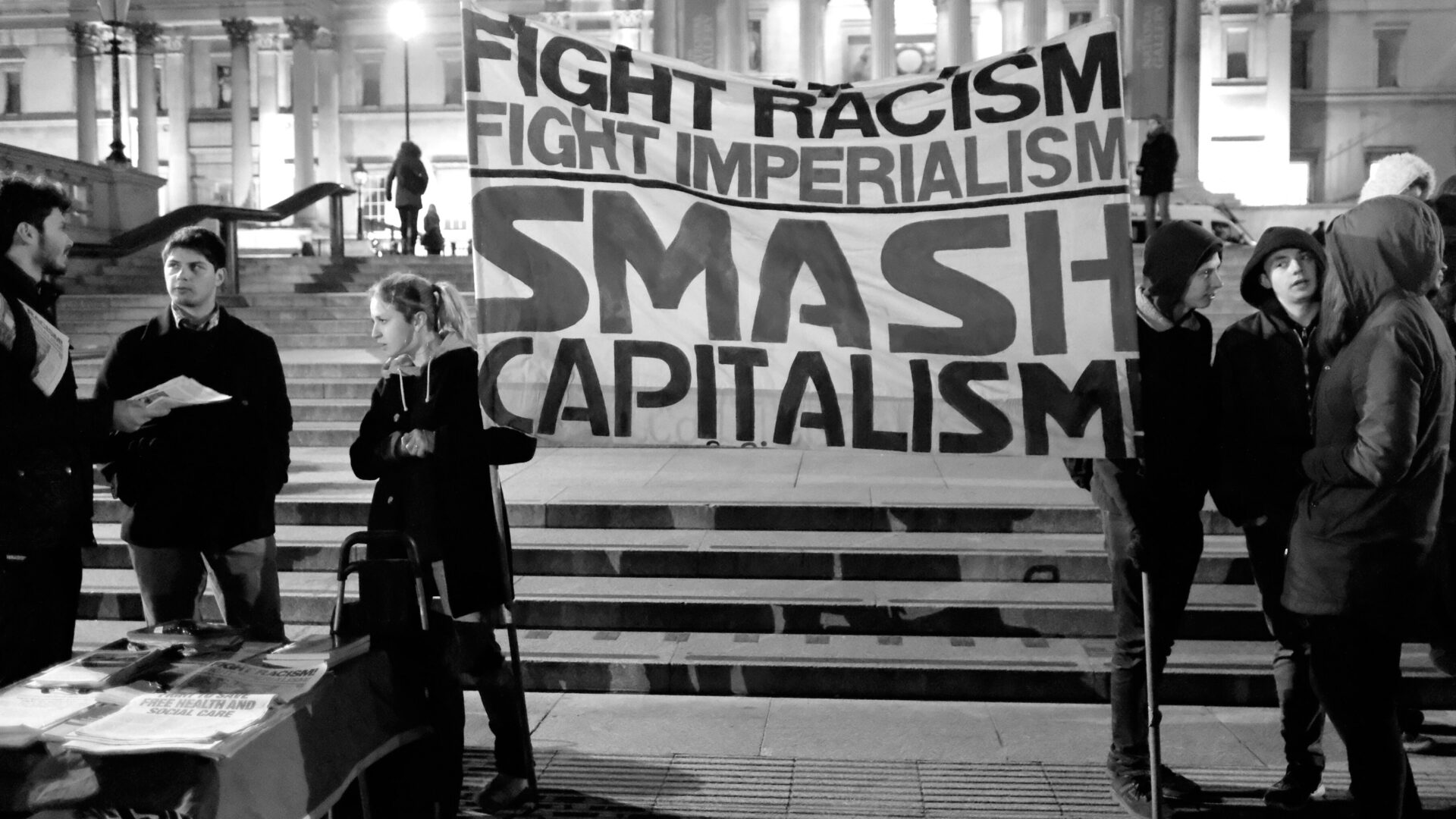

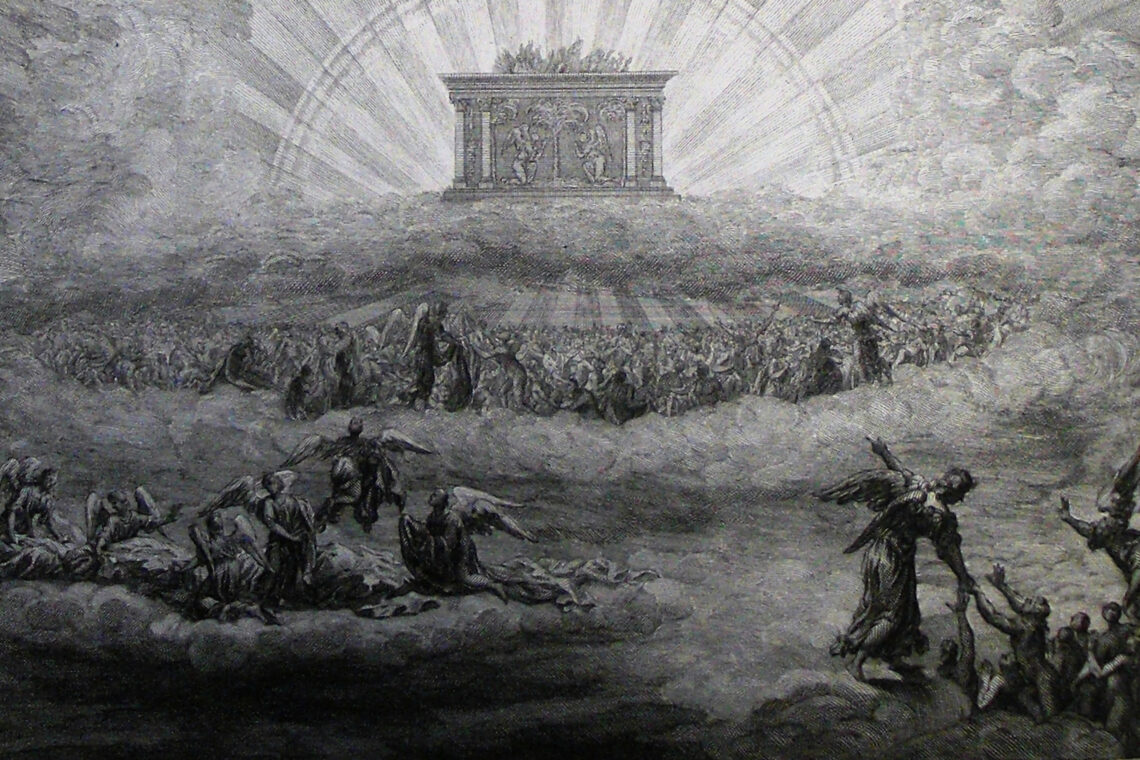

I so often have felt something missing from many a movement of activism toward whatever strikes the heart of a person. We all seem so divided and can’t agree as to what is most important to put our energy toward to effect change that we desperately feel we need. It makes perfect sense to coalesce them all together in a fight to somehow change the very oppressive system of capitalism we are all so enslaved to. It gives us all a field in which to work in a unified fashion right in our own back yard with world wide consequence. Thanks!